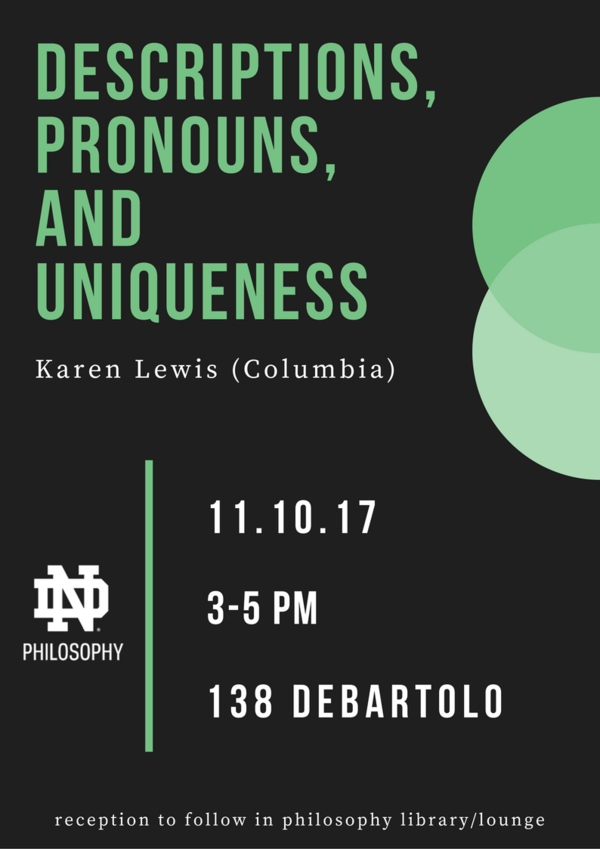Karen Lewis (Columbia)
Prof. Karen Lewis from Columbia University will be giving a talk on "Descriptions, Pronouns, and Uniqueness" as part of the Philosophy Colloquium Series. The talk will be held November 10th from 3-4pm, followed by Q&A from 4-5pm in 138 DeBartolo Hall. For more information on Dr. Lewis, please visit her website. The abstract for the talk is below:
Both definite descriptions and pronouns are often anaphoric; that is, part of their interpretation in context depends on prior linguistic material in the discourse. For example:
- A student walked in. The student sat down.
- A student walked in. She sat down.
One popular view of anaphoric pronouns, the d-type view, is that pronouns like ``she’’ go proxy for definite descriptions like “the woman who walked in”. I argue that all existing d-type views encounter a uniqueness problem. The various semantics for definite descriptions on existing d-type theories, which are in the tradition of Russell or Frege, involve uniqueness. But I argue that the truth of discourses like (1) and (2) is compatible with there being more than one (female) student who walked in (even limited to the contextually salient situation). Furthermore, I argue that appealing to who the speaker has in mind yields the wrong truth conditions. The truth conditions for discourses like (1) and (2) seem to be existential, that is, they are true if at least one (female) student walked in (to the contextually salient place) and sat down. I propose a new semantics for definite descriptions in the Fregean and Russellian tradition that captures all these facts. First, on my view definite descriptions are (restricted) existential quantifiers that presuppose uniqueness. Second, I define two kinds of uniqueness: worldly uniqueness and discourse uniqueness, the latter of which applies to anaphoric descriptions and d-type pronouns qua anaphoric descriptions. I suggest that this fares better than rival dynamic semantic accounts of anaphoric pronouns and definite descriptions. Finally, time permitting, I’ll discuss some other benefits of the view – it seems that this view of definite descriptions has the power to account for some facts unrelated to anaphoric descriptions, such as possessives.
